by Paul Fassa
Health Impact News
Since 2015 there have been a few pharmaceutical companies working on a new cholesterol-lowering drug type as a replacement for the older class of statin drugs, such as Lipitor. Lipitor was the best-selling drug of all time, but its patent expired a few years ago.
The new mantra is getting LDL cholesterol levels lower than statin drugs. The drug class of these new cholesterol-lowering drugs is a PCSK9 inhibitor.
Of course, this is madness for two reasons: (1) Cholesterol and fats, in general, are not the cause of heart disease; (2) cholesterol is vital for hormone production and nervous system and brain function.
So why the focus for a new cholesterol-lowering drug? Are drug companies finally getting real feedback on side effects?
Well, statistically around 15 percent of statin patients are considered statin intolerant. It might be safe to assume any side effects reported were not considered caused by lowering cholesterol, the drug’s primary function.
The fact is that cholesterol is vitally essential for good health, and lowering cholesterol artificially can and does lead to more immediate health problems, and a lower life expectancy. (See: Statin Scam: People with Higher Cholesterol Live Longer than People with Low Cholesterol)
Heart attacks still remain high since statins have been issued for anyone with heart problems or anyone that may have what are considered, albeit often falsely, markers predicting heart problems. The results have been disastrous. (Source)
One would hope the medical system would realize that lowering cholesterol is not a good thing because it is vital for many of our hormonal activity and brain and nervous system structure. Despite occasional dissenting voices from within, the medical industry and its drug cartel are not going to realize that.
Following the Money
Blockbuster statins are giving way to this new class of drugs that are intended to become the new blockbuster pharmaceutical drug. Remember, the term “blockbuster pharmaceutical” is used in mainstream and financial media to indicate extremely high sale revenues. It has nothing to do with efficacy or safety.
So once again, we follow the money. Weekly injection costs of PCSK9 inhibitors is estimated to cost around $13,000 annually. Since most statin drug patents have expired, generic statin oral tablets taken daily are on the market at a $100 annual cost.
At this point, the maker, Amgen, of the PCSK9 drug called Repatha, is negotiating various private and government insurance providers for as much coverage as possible under the right conditions, which should be sold as needed because of “statin intolerance” or statin drugs did not lower LDL “bad” cholesterol enough. How low can we go is the new slogan for cholesterol lowering drugs.
Most of those on the forefront of developing and marketing this new class of potential “blockbuster” drugs are gung-ho on getting cholesterol lower and lower. Amazingly, they ignore the statistical realities of continuing heart disease and adverse effects of lowering cholesterol.
And the claim is these new drugs definitely do beat statins at lowering cholesterol. The estimated 15 percent who are statin intolerant are able to manage well through diet and exercise.
But doctor street talk in publications covering this new drug suggests that the new drugs should be taken in addition to statins to lower cholesterol even more. Seems more like double the danger and increase the revenue without putting a dent in heart disease rates.
What are the Differences Between Statin Drugs and These New PCSK9 Inhibitors?
Very basically, statin drugs block or impede the production of cholesterol. In doing so, they also impede the body’s production of coenzyme Q10 aka CoQ10, which is not only important for the heart, it’s a vital aspect for Adenosine triphosphate aka ATP production needed in the mitochondria’s energy production within all cells.
The protein PCSK9 stands for proprotein convertase subtilisin/kexin 9, a gene that’s involved in regulating the liver’s ability to filter out LDL cholesterol. By suppressing the gene’s activity, more LDL cholesterol gets filtered out through the liver.
But the reality is that lowering cholesterol is inherently unhealthy for most. Cholesterol is responsible for the initial stage of converting the sunshine into vitamin D, an important proven overall immunity vitamin. As mentioned earlier, it’s also responsible for creating different hormones.
Our endocrine glands, such as adrenal and sex glands, need cholesterol to produce steroid hormones. Among these are testosterone, progesterone, pregnenolone, androsterone, estrone, estradiol, corticosterone, aldosterone, and others. You’re probably aware of some chronic irregularities from shortages or imbalances with these hormones.
Cholesterol is the material used for making firm cell walls throughout the body. It supports the central nervous system’s protective myelin sheath. Around 25 percent of the body’s cholesterol is in brain matter. Lowering cholesterol is opening the door to dementia and nervous system diseases of all types.
Yet, with all the apparent logic of less danger from this class of cholesterol-reducing drug, something strange happened with this drug’s major human trial, as it was halted prematurely.
PCSK9 Trial Prematurely Ended for Different Reasons
After garnering 27,000 volunteer human subjects for a trial that was supposed to run four years, Pfizer dropped the whole thing midway through, promising to share what it had found with other companies working on their versions of PCSK9 drugs.
Here’s the statement from Pfizer on their decision to halt development of their PCSK9 drug:
“The totality of clinical information now available for bococizumab [Pfizer’s drug] taken together with the evolving treatment and market landscape for lipid-lowering agents, indicates that bococizumab is not likely to provide value to patients, physicians, or shareholders.”
Yes – shareholders are included as important to consider in the legal drug business. They would be concerned if several adverse side effects and deaths occurred from using the new drug. It seems there were enough side effects reported during the trial to call it off.
Ironically, a competitor of Pfizer, Amgen, with its own variation of the same class of PCSK9 drugs, brand named Repatha, announced that its human trial, also intended to last four years was over after 2.2 years because it had achieved its efficacy goals of reducing non-fatal heart attacks and cardiac surgical procedures, such as arterial stent insertions.
Amgen also had over 27,000 volunteer subjects, and as usual around half were placebo. All of them were on statin drugs throughout the trial. Amgen claimed the results of lowered LDL cholesterol were 59 percent greater with Repatha in addition to statin drugs than the placebo group on statins.
What makes their success report suspicious is the number of deaths being almost the same for both groups. The number of cardiac fatalities among the Repatha group was 251. Cardiac fatalities in the placebo group were 240. So there were 11 more cardiac-related deaths among the Repatha group.
Deaths from other causes added into cardiac fatalities were also similar: 444 deaths among the Repatha group compared to 426 deaths in the placebo group. And there were 18 more deaths overall among the Repatha subjects than the placebo group. Over 12 percent of the 27,000 test subjects over the 2.2 year period dropped out – side effects?
Yet during those 2.2 years, Amgen claimed there were fewer stents and other surgical interventions, hospitalizations, and less non-fatal heart attacks. Some consider this very suspicious. And upon further consideration, one might ask is that all there is to this potential “pharmaceutical blockbuster” worth shelling out $13,000 plus annually?
Dietary changes, moderate exercise and lifestyle changes (less stressful, more relaxing) with some natural supplementation and appropriate herbs should be all that is needed for a healthy vascular system, even after cardiac events. Here are some excellent, very inexpensive examples.
Don’t be Scammed!
The cholesterol drug scam has been exposed, but there are powerful sources at work in the medical system to keep it going.
One of the best documentaries exposing the statin scam and interviewing doctors in the industry who have exposed it, was published last year on ABC in Australia. The medical authorities were not successful in preventing it from being aired on TV, but they forced ABC to remove them from their website.
We currently are using copies available on YouTube. Take some time to watch these important documentaries produced by medical doctors on the statin drug scam, and be informed!
HEART OF THE MATTER Part 1: The Cholesterol Myth: Dietary Villains
HEART OF THE MATTER Part 2: The Cholesterol Drug War
Sources:
https://drmalcolmkendrick.org/2017/03/20/cholesterol-lowering-proven-or-not/
http://cardiobrief.org/2016/11/01/pfizers-ends-development-of-its-pcsk9-inhibitor/
http://www.ajpb.com/articles/statins-versus-pcks9-inhibitors-which-is-more-beneficial
http://www.medscape.com/viewarticle/854762
Comment on this article at HealthImpactNews.com.



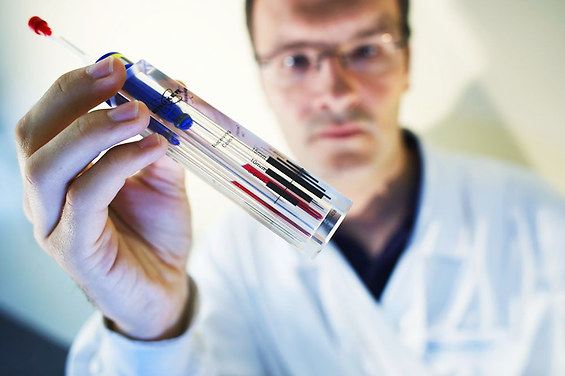
 The FDA has NOT Banned Trans Fats! Traditional Saturated Fats like Coconut Oil Continue to Shine for Alzheimer's Disease but are Condemned by U.S. Dietary Advice
The FDA has NOT Banned Trans Fats! Traditional Saturated Fats like Coconut Oil Continue to Shine for Alzheimer's Disease but are Condemned by U.S. Dietary Advice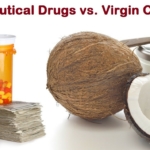 The Evidence of Coconut Oil's Superiority Over Drugs in Destroying Pathogens Continues to be Published in Peer-Reviewed Journals
The Evidence of Coconut Oil's Superiority Over Drugs in Destroying Pathogens Continues to be Published in Peer-Reviewed Journals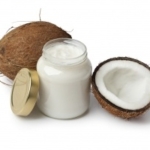 Study: Virgin Coconut Oil Protects Neuronal Damage and Mortality after a Stroke Incidence
Study: Virgin Coconut Oil Protects Neuronal Damage and Mortality after a Stroke Incidence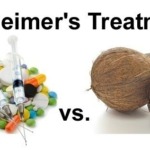 Another Phase 3 Trial Failure to Develop an Alzheimer's Drug Shows Why Virgin Coconut Oil is Needed to Prevent Dementia
Another Phase 3 Trial Failure to Develop an Alzheimer's Drug Shows Why Virgin Coconut Oil is Needed to Prevent Dementia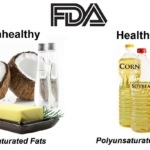 FDA Food Police want to Dictate What Foods are "Healthy" in New Guidelines Criminalizing Traditional Fats Like Butter and Coconut Oil
FDA Food Police want to Dictate What Foods are "Healthy" in New Guidelines Criminalizing Traditional Fats Like Butter and Coconut Oil